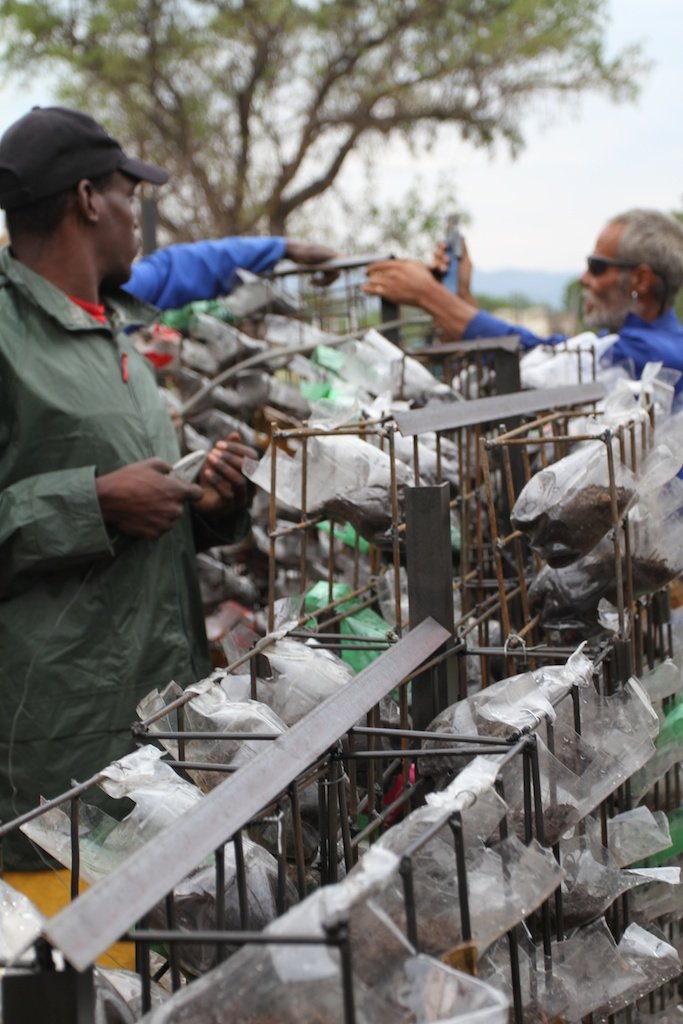Location
Limpopo,
South Africa
Bergnek, Limpopo, South Africa
Bergnek is located in South Africa's Limpopo Province, just over 300km north of Johannesburg. It's nearest urban centre is Polokwane, located approximately 40km to the north.
Polokwane, also known by its former name, Pietersburg, is a city and the capital of Limpopo. It is South Africa's largest urban centre north of Gauteng. Johannesburg is South Africa's biggest city and capital of Gauteng.
Activities
Lacking infrastructure and commerce, community gatherings in Bergnek are key for maintaining social and mental wellbeing. Lack of employment means most parents have little choice but to leave their children and find work in the nearby cities of Pretoria and Johannesburg. Affectionately referred to as GoGo's, children are generally raised by their grandparents. GoGo's play a key role in keeping the community alive and running. Their care maintains the bond between the aged and youth, helping children to ground themselves. They look after ALL children – not just their own relatives.
Resources
We have fertile land for farming and livestock farming. There are 9 farms, which belong to the community: 4 are government controlled, and; 5 are controlled by the Tribal Headman. Without irrigation, they are of limited use due to lack of water. Bergnek has access to over 1000 hectares of land that could be used for cultivation or other businesses. Overall the community has 5,000 hectares of land. There is some gold around the community.
Economy
Other than through the projects we have, there is little to no employment in Bergnek. There are some Somali run stores that are operated out of homes on the outskirts of Bergnek. These stores are supported through a local network that keeps a warehouse of supplies in Johannesburg. Our projects include GirlStuff which manufactures re-usable face masks, cloth sanitary pads and school uniforms, and a Community Food Garden.
Challenges
South Africa is prone to drought and Bergnek has a limited water supply: a dismal supply of water at 5 litre’s per person per day when available. This has made developing a local economy, that serves the needs of those who live here, seem impossible to do. Other than drought, our main challenges come from lack of food, employment, infrastructure, stable brick and mortar housing, access to higher education, money for internet connections, and access to health care.
70% of families in the community, who on average earn less than $180 US per month or $6 daily which in most cases includes those with child grants or pensions in the home.
Lack of infrastructure and water, delays on government RDP (low cost hosing)– Reconstruction and Development Project– housing and poverty is resulting in a growing number of new landowner having to live in tin shacks due to a lack of available resources, including some with no toilet facilities whatsoever.
There is only one combined school. It serves both primary and secondary level students. Kids are from 5yrs to 22yrs. Total of around 500 students.
Opportunities
There is one computer available for public use. It is located in the same building as the GirlStuff project.
Because Bergnek has access to silt, a better water supply could lead to the development of a brick making business providing much needed employment. Income generated by the business will be used to produce bricks for building much needed housing and a small health care facility, at a significantly lower cost than what has been proposed by the regional government. The clinic will used by surrounding communities as well as the residents of Bergnek.
Skills
Bergnek is special in that it has existed in somewhat of a vacuum since inception. The lack of support for the people of Bergnek means that people are forced to gain skills elsewhere. Lack of employment prevents their return. Most have to leave the upbringing of their children to the elders. It is our hope that the opportunities afforded through funds donated to our projects will mean we can develop a local demand and supply chain that will help change things up.
Language & Literacy
86% of the youth (10 - 35 years) in the community understand and speak English. Most of the adult people understand and can speak Afrikaans. Only 5% of the elderly understand and speak English. About 5% of the community speak and understand Xhosa.
Population
Bergnek is a small community with a population of about 2000 to 3000 people. Most of the population are Christian or follow traditional African beliefs.
Demographics
Approximately 35% are Young (0-14 years). 60% are at working age (15-64 years), and 5% are Elderly (65+ years).
This community has no matching Opportunities at this time.
No matching businesses at this time.
No matching members at this time.
Products and services available for CM Coins™ will go here.












